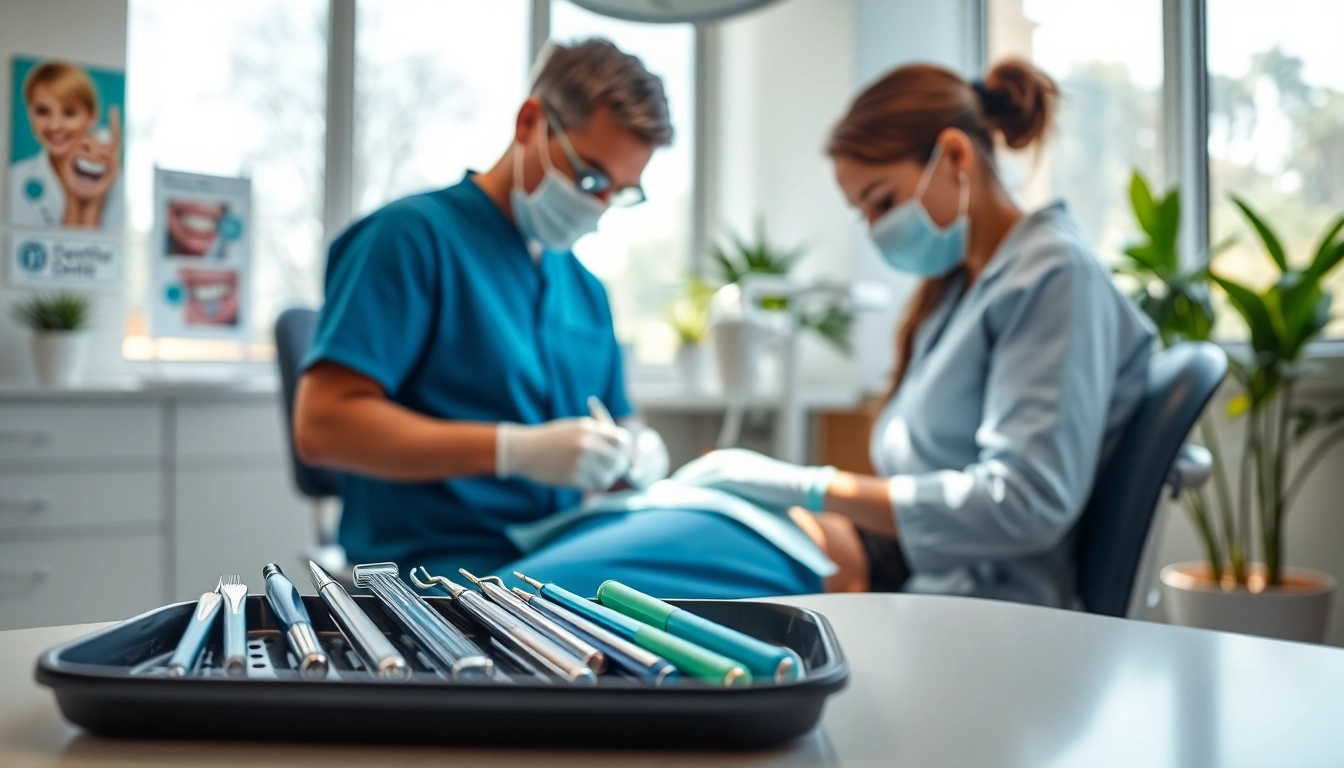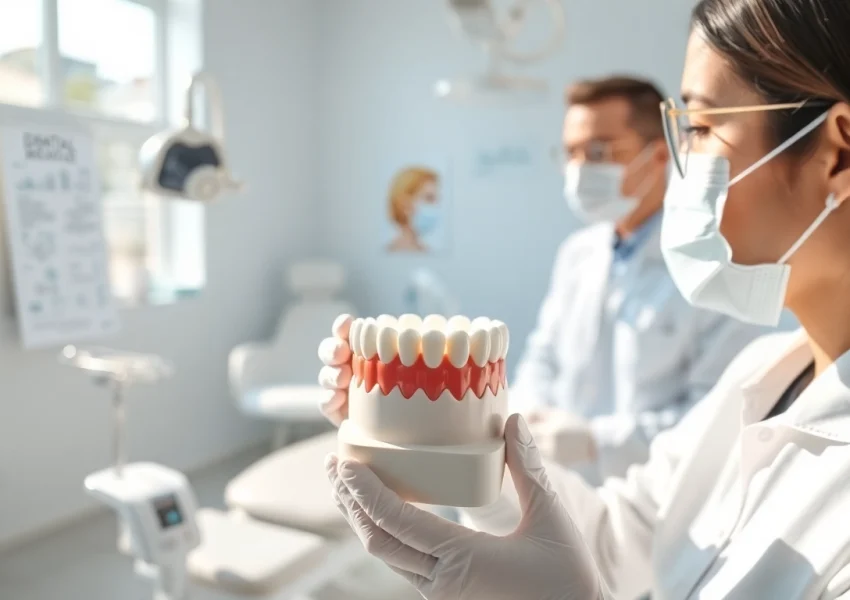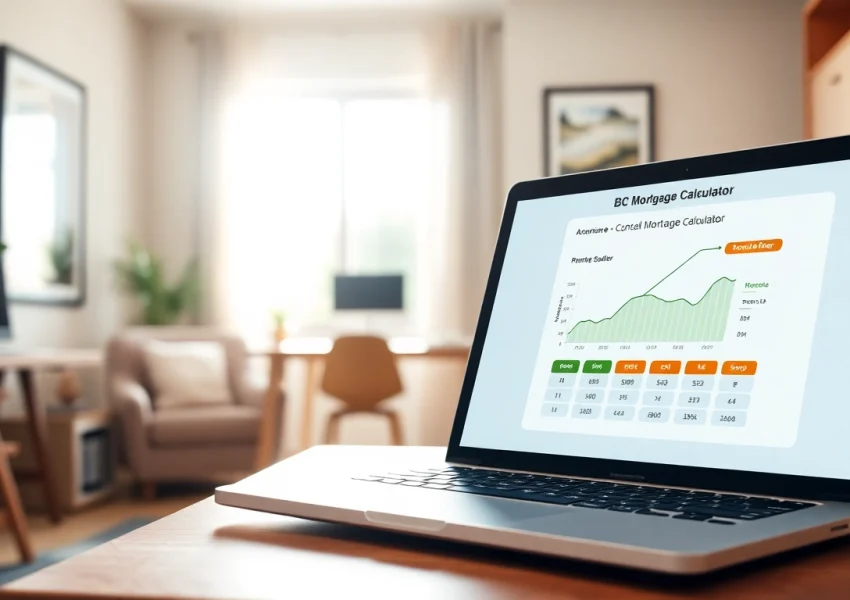The Importance of Dental Cleanings
Dental cleanings are fundamental to maintaining oral health and achieving a radiant smile. Regular visits for dental cleanings allow dentists to remove plaque and tartar build-up, which can lead to cavities and gum disease if left unchecked. Beyond just a fresh feeling, these cleanings are an important part of preventive healthcare.
Why Regular Dental Cleanings Are Essential
The American Dental Association recommends dental cleanings twice a year. These appointments are crucial for several reasons:
- Preventive Maintenance: Regular cleanings help prevent the onset of serious oral diseases, significantly reducing the risk of tooth decay and gum disease.
- Professional Assessment: Dental professionals can identify potential issues, such as early signs of oral cancer, worn fillings, or misaligned teeth, which patients might overlook.
- Removal of Bacteria: Cleanings eliminate harmful bacteria that contribute to oral diseases and bad breath, ensuring a healthier mouth and a more pleasant breath.
Impact on Overall Health
Oral health is linked to overall health, with studies revealing that conditions like heart disease, diabetes, and even some cancers have connections to oral hygiene. Maintaining good dental health can reduce these risks:
- Heart Health: Bacteria from gum disease can enter the bloodstream, potentially leading to heart conditions.
- Diabetes Control: Individuals with diabetes are more susceptible to infections, including gum disease; regular dental cleanings help manage blood sugar levels.
- Inflammation and Other Conditions: Ongoing oral infections may increase systemic inflammation, exacerbating chronic conditions.
Common Myths About Dental Cleanings
Misinformation can deter individuals from seeking needed dental care. Here are common myths debunked:
- Myth 1: Cleanings are painful. Fact: Most patients experience minimal discomfort, and proper anesthesia is available for those with sensitivity.
- Myth 2: Dental cleanings are unnecessary if you brush at home. Fact: Toothbrushes cannot reach all surfaces effectively; professional cleaning ensures all plaque is removed.
- Myth 3: Only people with poor dental hygiene need cleanings. Fact: Everyone benefits from regular cleanings!
Types of Dental Cleanings
The type of dental cleaning you need may depend on your oral health history. Knowing the differences can help you make an informed decision.
Preventative Cleanings Explained
Preventative dental cleanings, sometimes called prophylaxis, are designed for patients with healthy gums. These cleanings typically include:
- Visual examination and discussion of dental and medical history.
- Scaling to remove any surface plaque and tartar.
- Polishing to leave the teeth feeling clean and smooth, often using a gritty toothpaste.
Deep Cleanings for Advanced Care
When gum disease is evident, a deep cleaning is necessary. This is often referred to as scaling and root planing and involves:
- Removing plaque and tartar below the gum line.
- Texturing the roots of the teeth to reduce bacteria accumulation.
- Possibly using local anesthesia for comfort during the procedure.
Choosing the Right Type of Cleaning for You
Personal factors like your oral health condition and any existing dental issues will guide your choice of cleaning. A dental professional can recommend the best cleaning schedule:
- Healthy adults typically require preventive cleanings every six months.
- Individuals with gum disease or risk factors may need cleanings every three to four months.
The Dental Cleaning Process
Understanding what happens during a dental cleaning can help ease anxiety and promote timely visits.
What to Expect During Your Visit
During your dental cleaning appointment, you can expect the following steps:
- Initial Evaluation: The hygienist or dentist will discuss any changes in health and review your dental history.
- Professional Cleaning: Using specialized tools, they will remove plaque and tartar from your teeth.
- Fluoride Treatment: Depending on your health needs, a fluoride treatment may be applied to help strengthen your enamel.
- Post-Cleaning Recommendations: Based on your examination, dental care tips for at-home maintenance will be discussed.
Tools and Techniques Used in Dental Cleanings
Dental professionals utilize several tools during cleanings to ensure thorough hygiene:
- Scaler: Used to remove tartar from tooth surfaces.
- Ultrasonic Instruments: These tools vibrate to dislodge even the toughest deposits.
- Polishing Tools: Help in smoothing teeth after scaling, often using a pumice-agent mixture.
Aftercare and Oral Hygiene Tips
After your cleaning, adhering to specific care tips enhances oral health:
- Brush your teeth at least twice a day with fluoride toothpaste.
- Floss daily to prevent plaque build-up between cleans.
- Consider using an antibacterial mouthwash to help maintain gum health.
Benefits of Regular Dental Cleanings
The advantages of routine dental cleanings extend beyond just a brighter smile. They encompass a variety of health and financial benefits.
Preventing Tooth Decay and Gum Disease
Regular dental visits help prevent the most common oral health issues. Studies have shown that:
- People who undergo regular dental cleanings experience lower rates of cavities and gum disease.
- Patients often notice improved oral health, reducing the need for extensive dental procedures down the line.
Whitening and Polishing Effects
The aesthetic benefits of cleanings shouldn’t be overlooked. Polishing during the cleaning process helps:
- Remove surface stains from coffee, tea, and tobacco.
- Leave your teeth looking naturally brighter and healthier.
Cost-Effectiveness of Routine Care
Investing in regular dental cleanings can be more affordable than treating complex dental issues. Preventive care:
- Reduces the likelihood of high-cost procedures caused by neglect.
- Promotes a healthier mouth, which can lead to overall savings in medical care related to systemic diseases.
Frequently Asked Questions About Dental Cleanings
How Often Should You Get a Dental Cleaning?
Generally, the recommendation is to have a professional cleaning every six months. However, some individuals may need to visit more frequently depending on their dental health history and risk factors.
Is Dental Cleaning Painful?
While some discomfort might be felt, especially among those with gum disease, most patients find dental cleanings relatively painless. Dentists use techniques and anesthesia to ensure comfort throughout the procedure.
What Happens if You Skip Dental Cleanings?
Neglecting regular dental cleanings can lead to the accumulation of plaque and tartar, which can cause tooth decay, gum disease, and serious health conditions, emphasizing the importance of routine dental visits to maintain both dental and overall health.






